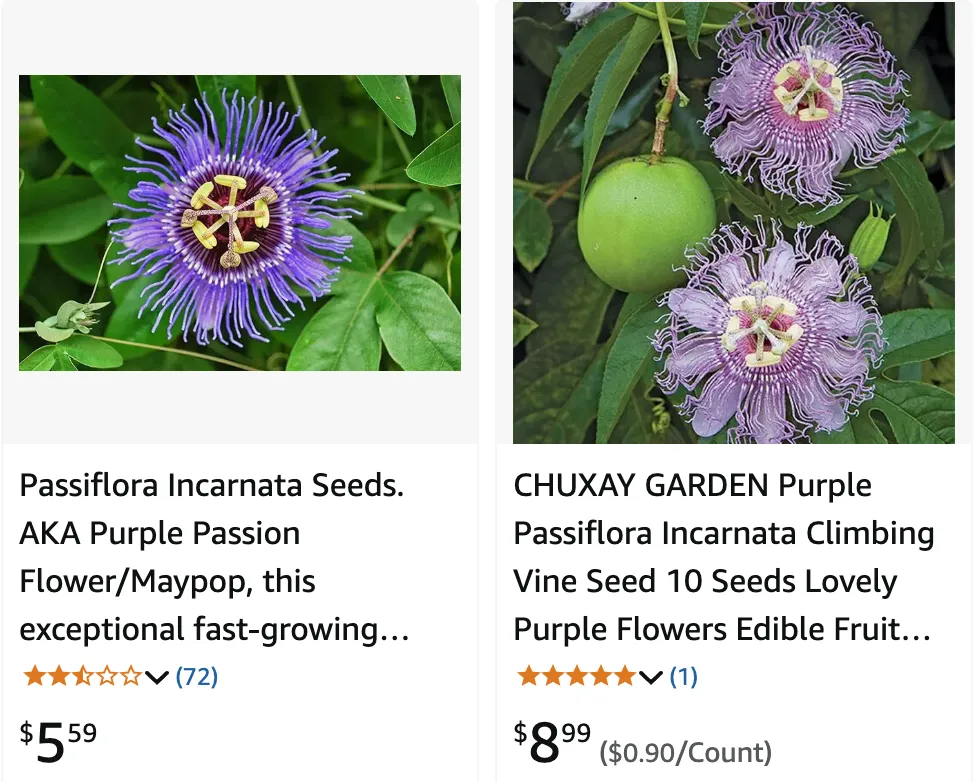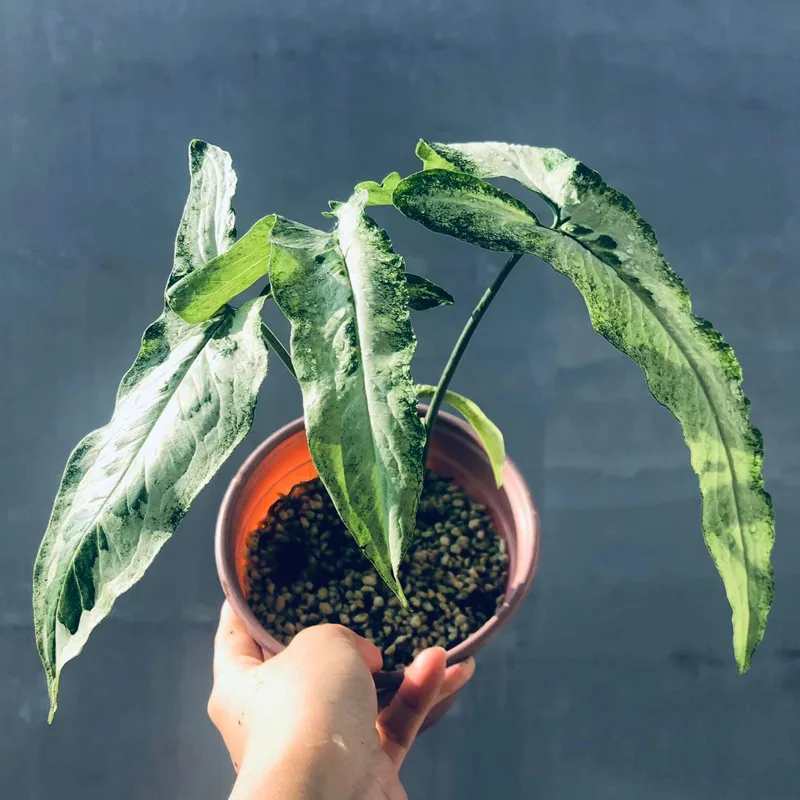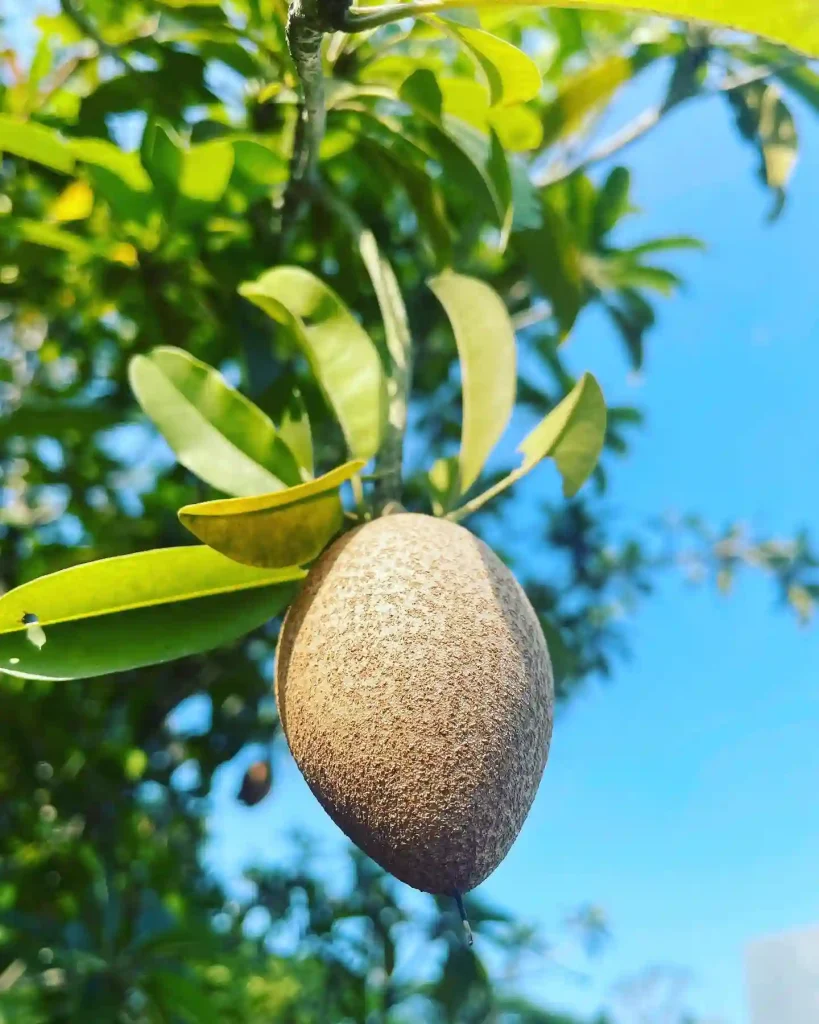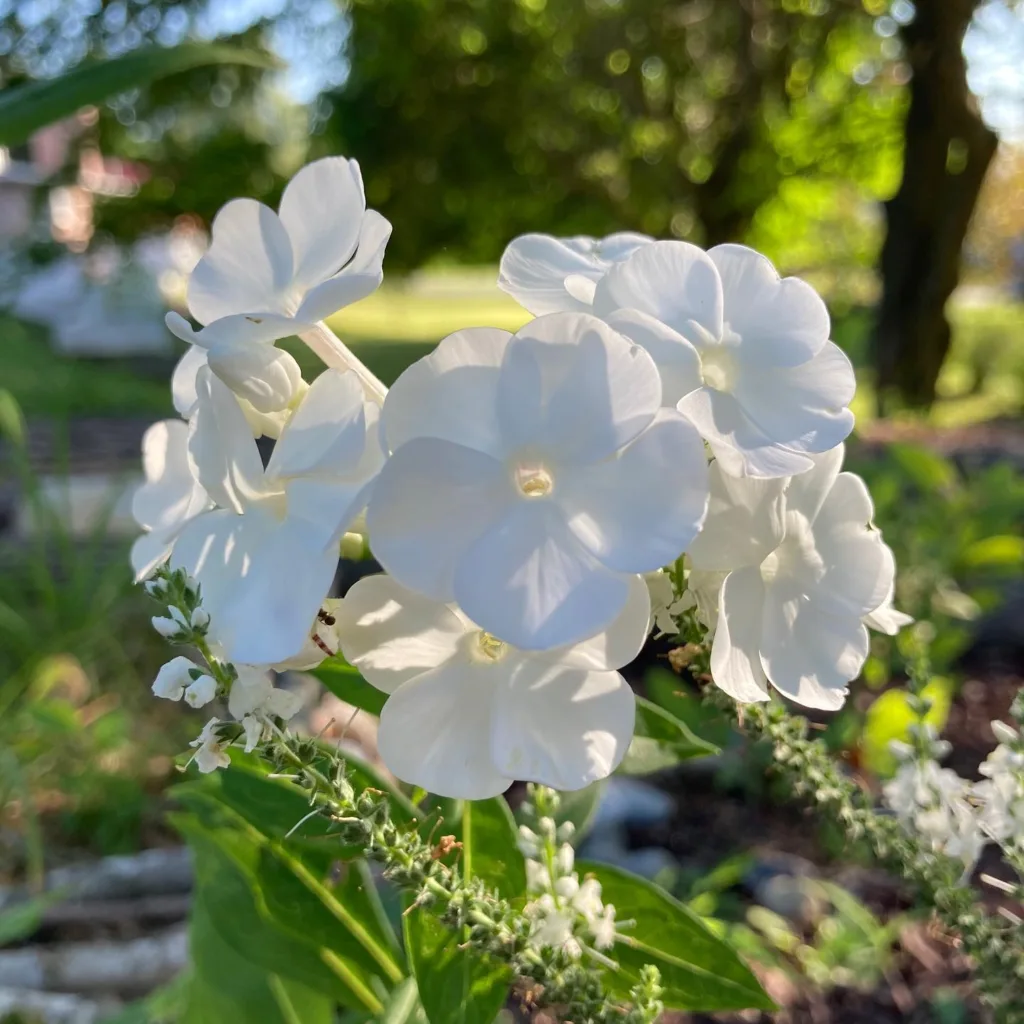
595 Species in Genus Passiflora
What is Passiflora Incarnata?
Passiflora incarnata, also known as maypop, purple passionflower, or wild passion vine, is a perennial climbing plant native to the southeastern United States. It’s known for its intricate, eye-catching purple flowers and its ability to thrive in warm, sunny environments. The plant is a member of the Passifloraceae family and is prized for both its ornamental beauty and its medicinal properties.
How to Grow Passiflora Incarnata?
Growing Passiflora incarnata is relatively easy. It thrives in full sun but can tolerate partial shade. Plant it in well-draining soil with a slightly acidic to neutral pH. It’s a fast-growing vine that needs a sturdy trellis or support to climb on. Water it regularly, especially during dry spells, but avoid waterlogging the roots. In cooler climates, mulch around the base to protect it during winter.
How to Care for Passiflora Incarnata?
Caring for Passiflora incarnata involves regular watering, especially during the growing season. Fertilize it once a month with a balanced fertilizer. Prune it in late winter or early spring to remove dead or overcrowded growth. Watch for pests like aphids and caterpillars, and treat them with natural remedies or insecticidal soap if needed.
How to Use Passiflora Incarnata?
Passiflora incarnata has various uses. Medicinally, its leaves and flowers are often used in teas or tinctures to promote relaxation and sleep. The fruit is edible and can be used in desserts, smoothies, or jams. Some people grow it purely for its ornamental value due to its unique flowers.
Is Passiflora Incarnata Edible?
Yes, Passiflora incarnata is edible. The ripe fruit, called maypop, has a sweet-tart flavor and can be eaten fresh or used in recipes like jams and desserts. However, make sure the fruit is fully ripe before consumption, as unripe fruits may be mildly toxic.
Where to Buy Passiflora Incarnata?
You can buy Passiflora incarnata from garden centers, nurseries, or online plant stores. I’ve also seen it available as seeds or young plants on websites like Etsy, Amazon, or specialized horticulture sites. Just ensure you’re buying from a reputable seller.
Does Passiflora Incarnata Produce Fruit?
Yes, Passiflora incarnata produces fruit known as maypop. The fruits are oval-shaped, green when unripe, and turn yellow or orange as they mature. They typically appear in late summer to early fall and are a delightful treat for both humans and wildlife.
Passiflora Incarnata vs. Passiflora Caerulea
While both are passionflowers, Passiflora incarnata is native to North America and produces edible fruit, whereas Passiflora caerulea is native to South America and is primarily grown for ornamental purposes. Passiflora caerulea’s flowers are more bluish, and its fruit is generally considered inedible or unpleasantly flavored.
Passiflora Incarnata vs. Passiflora Edulis
The main difference is that Passiflora edulis is the species commonly grown for commercial passionfruit production, with larger, sweeter fruit. In contrast, Passiflora incarnata has smaller, less sweet fruit but is hardier and better suited to temperate climates.
How to Propagate Passiflora Incarnata?
Passiflora incarnata can be propagated through seeds or cuttings. To propagate by seed, soak the seeds in warm water for 24 hours, then plant them in moist soil. For cuttings, take a healthy stem cutting, dip it in rooting hormone, and place it in moist potting soil. Keep the soil consistently damp until roots develop.
What to Plant with Passiflora Incarnata?
Passiflora incarnata pairs well with plants like clematis, jasmine, or honeysuckle. These complementary vines create a stunning visual display when grown together. You can also plant it alongside pollinator-friendly flowers to attract bees and butterflies.
Can You Grow Passiflora Incarnata Indoors?
Growing Passiflora incarnata indoors is possible but challenging due to its vigorous growth and need for full sunlight. If you try, place it near a south-facing window or use grow lights, and provide a trellis for climbing.
Is Passiflora Incarnata Toxic?
Passiflora incarnata is generally safe, but some parts, like unripe fruit, may contain trace amounts of toxic compounds. While it’s non-toxic to humans when properly prepared, consult a vet before letting pets consume any part of the plant.
What are the Benefits of Passiflora Incarnata?
Passiflora incarnata is known for its calming properties and is often used as a natural remedy for anxiety, insomnia, and mild pain. Its fruit is rich in vitamins and antioxidants, and its flowers attract pollinators, making it beneficial for gardens.
Common Problems with Passiflora Incarnata
Common issues include pests like aphids, whiteflies, and caterpillars. Fungal diseases like powdery mildew can also occur if the plant is overwatered or lacks airflow. Additionally, in cold climates, it may struggle without winter protection.
If i die, water my plants!



